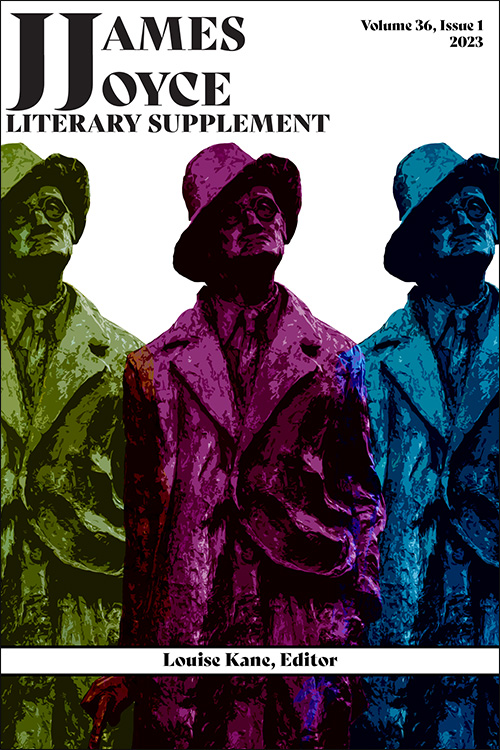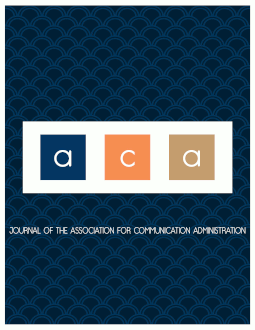Featured Publications
Submit Your Research
To submit your research, log in or create an account in STARS. Then, click on a link below or navigate to the specific Collection and click the Submit Work link in the left column. Some publications do not allow authors to submit directly. In these cases, you will be provided with a mail form to contact the appropriate administrator for further instructions.
Faculty and Staff Submissions
Faculty and staff may submit research online through a direct submission process or contact STARS@ucf.edu to be paired with a staff member who will assist with the submission process. All submissions are reviewed for digital accessibility and copyright compliance.
Please submit all published faculty research to Faculty Scholarship and Creative Works, not a department-specific collection. STARS will sort your works according to the college and department noted on the submission.
Student Submissions
Student contributions include Graduate Theses and Dissertations, Honors Undergraduate Theses, and works that are recommended for inclusion by a UCF faculty member.
Graduate Theses and Dissertations
Once your format review assignment is approved, instructions for submitting your work will be provided by the Office of Graduate Student Life and the Thesis Editor. Please wait for these instructions before attempting to submit your work, and ensure you follow the specified submission process outlined in the instructions. Failure to adhere to these instructions will lead to rejection of your submission.
Honors Undergraduate Theses
After a student successfully completes their format review, orally defends their thesis, and submits the Thesis Approval Form, they will receive instructions from the Office of Honors Research to upload the final thesis document to the STARS.
Other Student Research
Email us if you have student research to add to STARS.Student Scholar Symposium
The Student Scholar Symposium provides an opportunity for graduate and undergraduate students to present their research and creative scholarship to the UCF community during Student Research Week. Submit your Student Scholar Symposium poster.
All other collections
If the collection you are looking for is not listed below, please contact STARS@ucf.edu.
2020-2021 Afrofuturism Syllabus - Week 1 - Interview with Dr. Julian Chambliss (ZORA! Festival Academic Conference: 2020-2021 Afrofuturism Syllabus)
Image: Dr. Julian Chambliss speaks at the 2020 Zora Neale Hurston Festival of Arts & Humanities Academic Conference: "What is Afrofuturism?" Image Credit: Scot French
Welcome to Week 1 of the ZORA! Festival 2020-2021 Afrofuturism Course!
Please begin by reviewing About the Course for an introduction and orientation to the 2020-2021 Afrofuturism Syllabus, which bridges the organizing themes of the first two years of the five-year Afrofuturism Conference Cycle: "What is Afrofuturism?" and "What is the Sound of Afrofuturism?"
Note: Each week the course coordinator will release new content related to the conference themes. Content posted here will remain publicly accessible and may be incorporated into other courses, in part or in full, via links to this site. Suggested citation: French, Scot. Syllabus for ZORA! Festival Afrofuturism Course, University of Central Florida, Orlando, Fall 2020-Spring 2021. STARS, https://stars.library.ucf.edu/afrofuturism_syllabus_about/.
Conversations
In the Conversations segment we share interviews and panel discussions featuring participants in the 2020-2021 ZORA! Festival Afrofuturism Conference.
The week features a 30-minute "framing" interview with Dr. Julian C. Chambliss, curator of the Festival’s 2020-2024 Afrofuturism Conference cycle. Dr. Chambliss revisits the 2020 introductory conference theme, "What is Afrofuturism?", offers his own definition, and references a wide range of Afrofuturist thought/expression in comics, music, literature, and film.
From an historical perspective, Dr. Chambliss explains how Afrofuturism informed the founding of Eatonville, Florida, as an historic Black township; infused the literary-scholarly works of Zora Neale Hurston; and provides the ideal framework for the ZORA! Festival in this "Afrofuturist moment." Holly Baker, Archivist at the Library of Florida History and Public History Coordinator for the Florida Historical Society -- and a familiar voice from the Florida Frontiers radio program -- conducts the interview as part of the Every Tongue Got to Confess podcast series. Dr. Chambliss and Ms. Baker produce the podcast series, currently in its fifth season.
- Every Tongue Got To Confess Podcast Episode: Interview with Dr. Julian Chambliss, Curator, Zora Neale Hurston Festival of the Arts & Humanities 2020 Afrofuturism Conference

In addition to the featured conversation with Dr. Chambliss, Week One offers a series of brief, 2-minute interviews with participants in the 2020 Conference. Recorded by Rhea Posey and Nulieta John for Preserve the Eatonville Community, Inc., these clips capture the excitement of the event as it unfolded at UCF Downtown over two days last January.
- Interview with Ishmael Reed, Featured Presenter, Zora Neale Hurston Festival of the Arts & Humanities 2020 Afrofuturism Conference
- Interview with Dr. Marvin E. Hobson, Presenter, Zora Neale Hurston Festival of the Arts & Humanities 2020 Afrofuturism Conference
- Interview with Panel Presenters, Zora Neale Hurston Festival of the Arts & Humanities 2020 Afrofuturism Conference
- Interview with Dr. Julian Chambliss, Curator, Zora Neale Hurston Festival of the Arts & Humanities 2020 Afrofuturism Conference
- Interview with Dr. Reynaldo Anderson, Keynote Speaker, Zora Neale Hurston Festival of the Arts & Humanities 2020 Afrofuturism Conference
Explorations
In the Explorations segment we pose a series of questions for further investigation and class discussion, based on the featured Conversation.
Dr. Chambliss defines Afrofuturism as "Black speculative practice that critiques the status quo and projects a kind of liberatory vision for the future." What fields of intellectual/creative activity come first to mind when you hear that definition?
Dr. Chambliss continues: "I think whatever Black people imagine is kind of Afrofuturist by default, so Afrofuturism doesn't necessarily have to be about the future per se. Every black person alive, whenever they are alive, is looking towards the future. There is a certain kind of time politics in Afrofuturism that makes all Black people who are struggling toward liberation part of the same sort of intellectual movement. It's that mix of speculative practice and liberation that I think of as core to Afrofuturism." Do you agree? Discuss.
Dr. Chambliss and others argue that Afrofuturism -- a term coined in the 1990s -- is present in the work of Black writers and orators dating to the 19th and early 20th centuries. What, in his view, makes Zora Neale Hurston an ideal subject for Afrofuturist interpretation?
Dr. Chambliss specializes in the study of cities, both "real and imagined." In the interview, he notes that the mythical kingdom of Wakanda is perhaps the best known example of an Afrofuturist city but quickly adds: "There’s more to it than Black Panther." How -- in his view -- might we see late 19th/early 20th century historic Black towns and settlements, such as Hobson City, AL, Mound Bayou, LA, and Eatonville, FL, as Afrofuturist in design?
Dr. Chambliss references a number of contemporary (post 1970s) musical artists and writers whose sound / performance style is associated with Afrofuturism. We will be returning to this theme -- "What is the Sound of Afrofuturism?" -- later in the course. For now, try Googling "Afrofuturism" and one of these artists. What do you find?
Thank you for joining us! Next week: "Webinar on Afrofuturism: A Guide Amidst Tumultuous Times," featuring Dr. Julian C. Chambliss, Dr. Phillip Cunningham, and Prof. Trent Tomengo (moderator).
James Joyce Literary Supplement
ISSN 0899-3114
The James Joyce Literary Supplement (JJLS) is an international scholarly journal dedicated to reviewing all books about or related to James Joyce and Joyce-related subjects, such as Irish literature and modernism. JJLS began publication in May 1987, under the late Bernard Benstock. From 1987 to 2021, JJLS was published by the University of Miami. During that period, JJLS had three editors: Bernard Benstock (1986-1994), Zack Bowen (1994-2010), and Patrick A. McCarthy (1999-2021). From beginning to end Robert Lowery, Editor of the Irish Literary Supplement, also served as publisher and production designer of JJLS.
As of 2022, JJLS is published as an online journal by the University of Central Florida, with Dr. Louise Kane as Editor.

Journal of English Learner Education
ISSN 1949-8268
Published exclusively online twice a year, in the winter and summer, the Journal of English Learner Education is a scholarly refereed journal. It is grounded in the disciplines of second language acquisition, bilingual education, and English as a second language, but its purpose is to integrate research and best practices in a variety of fields as they relate specifically to the success of English learners in grades P-16.
The Journal of English Learner Education invites manuscripts in three areas: Research and Theory, Effective Practices, and Commentaries. Manuscripts can be submitted for review electronically on a rotating basis.
The journal is funded in part by a grant from the Office of English Language Acquisition, US Department of Education.
Please contact the editor, Dr. Laura Monroe, at , with any questions.
Individuals interested in becoming a reviewer for The Journal of English Learner Education should contact the Journal’s Managing Editor at .

Journal of the Association for Communication Administration
ISSN 2835-5180
The Journal of the Association for Communication Administration (JACA) is a scholarly outlet to promote discussion, study, criticism, research, and application of effective principles of education administration for the communication disciplines. Volumes 22 - present are available here.
Previous volumes were published under the titles Association for Communication Administration Bulletin (Volumes 11 - 21 from 1975 - 1992) and the Bulletin of the Association of Departments & Administrators in Speech Communication (Volumes 1 - 10 from 1972 - 1975). The previous titles will be posted next year. Digital Object Identifiers and metadata will also be completed.

